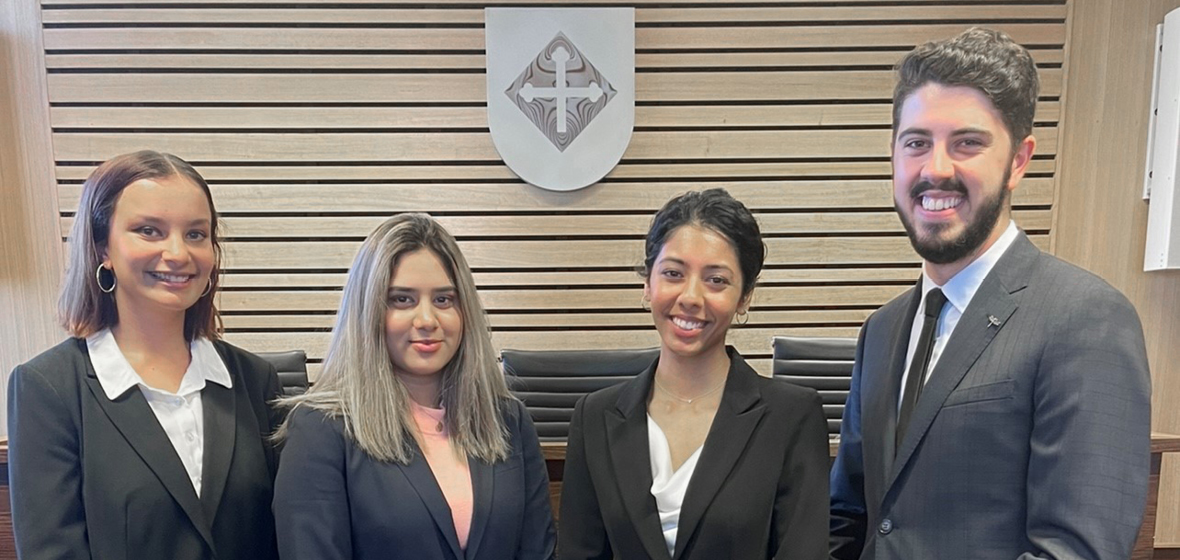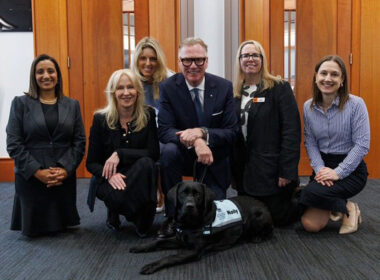The world’s largest commercial law moot would usually have taken place in Vienna in the week before Easter. However, with borders closed, the Willem C. Vis International Commercial Arbitration Moot took place online again this year.
Ironically, one of the issues mooted (online) was whether tribunal had the power to order an online hearing if an online hearing was opposed by one of the parties.
“The issue of remote hearings was a great example of the way in which the Vis Moot teaches real-world skills by addressing real-world arguments,” said Angus Macinnis, head coach of the Vis Moot team from the Australian Catholic University in Sydney.
“The teams had to contend with some arbitrators who said, ‘we’ve been working online quite successfully last year, what is your client’s problem with a remote hearing?’ On the other side of the question, some arbitrators responded, ‘we’ve learned in the last year that we can have hearings online if we have to, but there have been practical examples of security problems, so how will the proceedings be kept confidential if we agree with your client and make the order for an online hearing?’”
Macinnis pointed out that the topic of remote hearings demonstrated the global nature of international commercial arbitration.
“There were a number of Australian court decisions early in the pandemic that canvassed the merits and disadvantages of online hearings, and the reasoning in those decisions was picked up by arbitration scholars and practitioners. This meant, for example, that we had teams from all around the world relying heavily on Australian decisions like the decision of Perram J in Capic v Ford Motor Company of Australia Limited, and this demonstrates the global scope of international commercial arbitration, and Australia’s role in the development of practical and comparative legal thinking.”
Teams from NSW university teams did well in this year’s competition – the University of Sydney was the best-placed Australian team, reaching the final 16 teams out of the 385 teams taking part. Judges commended the team for its written submissions, and for three individual speakers, including Madeleine Bosler, who tied as runner-up best speaker in the competition.
The Australian Catholic University (which teaches law from its North Sydney and Blacktown campuses, as well as from Melbourne and Brisbane) fielded the next-best Australian team, reaching the final 32. Team member Joshua Crawley was commended as best speaker.
Professor Patrick Keyzer, Dean of the Thomas More Law School at the Australian Catholic University, said he was thrilled to watch the team’s success.
“As a sometime barrister I wish I had taken up all the opportunities I had at law school to moot and compete, as these students have done. The experience they had working round the clock on the Vis Team will stand them in good stead for the rigours of legal practice.”
So, does this mean that remote hearings are the way of the future, either in mooting or in arbitration generally? Macinnis said he hoped not.
“Although we have learned a huge amount about practicing and teaching online advocacy in the past year or so, having the opportunity to persuade a tribunal in person is still a better experience.
“Also, although Vienna is the coffee-house capital of the world, the time zone differences which we had to face when we were mooting online mean that we probably drank more coffee in Sydney to stay awake than we would have if we were in Vienna!”




